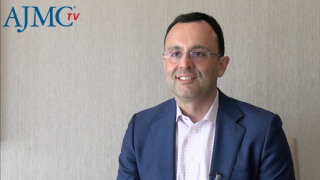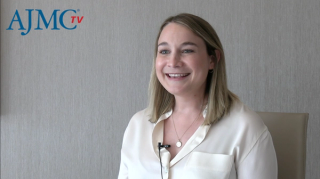
Value-Based Care
Latest News

Latest Videos

More News

The US can learn from what other countries are doing well to implement the best programs to improve patient access to care, especially for those who have the worst outcomes, explained Nadine J. Barrett, PhD, MA, MS, FACCC, of Wake Forest University and the Association of Cancer Care Centers.

Matias Sanchez, MD, assistant professor in the Department of Medicine, Division of Hematology and Oncology, University of Illinois Chicago, emphasizes the importance of patient education and caregiver involvement in managing complex therapies and advises oncologists to confidently integrate advanced treatments.

Palliative care is quality care, and providers and health systems need to do a better job at ensuring there is equity in palliative care, said Nadine J. Barrett, PhD, MA, MS, FACCC, of Wake Forest University and the Association of Cancer Care Centers.

At CAQH Connect 2024, health care leaders discussed advancing value-based care through collaboration, data standardization, patient-centered approaches, and adaptable partnerships.

A study finds that telehealth does not lead to an increase in wasteful, low-value care and may even reduce unnecessary tests and procedures.

Carol R. Regueiro, MD, MSc, of Allegheny Health Network, highlights how the Physician Partners of Western PA practice support model has successfully engaged specialty practices to enhance patient connections and promote a population health perspective.

Carol R. Regueiro, MD, MSc, of Allegheny Health Network (AHN), explains how AHN's congestive heart failure bundle has enhanced collaboration between cardiology and primary care.

Health care costs continue to rise despite lower demand, while younger generations increasingly face chronic health challenges.

As the US charts its course through the next political era, it is crucial that we boldly allocate resources and prioritize what truly impacts patients. When faced with complexity, feasibility concerns, or entrenched norms, we must proclaim: “It’s the outcomes, stupid.”

The policy community should consider these concrete suggestions to address the challenges presented by social determinants of health.

As health care moves toward a value-based payment model, the pharmacy benefit is going in the opposite direction, one that places unit cost over clinical appropriateness.

Carol R. Regueiro, MD, MSc, of Allegheny Health Network, described how AHN's Physician Partners of Western PA practice support model and shadow bundle distribution model enhanced collaboration between primary and specialty care to improve patient outcomes.

This is the third article in a series on value-based care and the 4 challenges health care organizations must overcome.

Payers and providers face challenges surrounding data integration, patient engagement, and financial pressures when trying to improve care quality and reduce costs.

Viet Le, PA-C, Intermountain Health, gives insights into the benefits cardio-renal-metabolic care models provide for patients in need.

Navdeep Tangri, MD, PhD, FRCP, University of Manitoba, speaks to the value of population health strategies in clinical approaches to care delivery for patients with chronic kidney disease (CKD).



Lalan Wilfong, MD, a 20-year medical oncologist with Texas Oncology, is senior vice president, value-based care, Thyme Care.


In this interview from our Institute for Value-Based Medicine® event in Boston, we speak with Michael Hassett, MD, MPH, Dana-Farber Cancer Institute, on the clinical significance and cost implications of HER2 in the breast cancer space.

This article explores the congruence between payer patient assignment and quality performance and the implications for incentive payments in alternative payment models.

The legacy of redlining continues to harm minority health, with Black individuals facing higher rates of health issues, linked to environmental factors and limited access to resources in regions previously redlined.

Experts discuss how health care organizations can address the "missing patient" problem in our health system.

The 2024 Trends Shaping the Health Economy report gave a past, present, and future look at diabetes care in the US and the role of obesity in these trends.















